 Looking for a cause? This one is non-political, timely, still under-the-radar, and a spearhead for tackling all sorts of issues.
Looking for a cause? This one is non-political, timely, still under-the-radar, and a spearhead for tackling all sorts of issues.
Why us?
War. Eco-crises. Hardship. Injustice. Isn’t pushing for Modern Markets for All a sideshow in the face of today’s overwhelming problems? With more visceral ideas for shaping a better world, that address issues more directly, by giving people cash for example, why put resources or energy into this one?
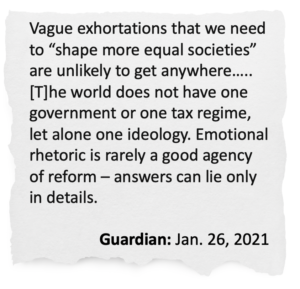 Focused issue: Countless proposals aim to fix capitalism. They typically urge new metrics then extensive changes to regulation, emissions, voting, tax, and welfare. Our ask is tightly boundaried: Better markets.
Focused issue: Countless proposals aim to fix capitalism. They typically urge new metrics then extensive changes to regulation, emissions, voting, tax, and welfare. Our ask is tightly boundaried: Better markets.- Spearhead issue: Better markets would tackle climate degradation, exclusion, inequality, government expenditure, and other issues. Our tight focus does not mean looking at only one problem.
- It could be an easier battle to win: We are pushing for public policy to shape a concession that initiates an additional possibility in the economy. There’s no cost to taxpayers. It adds to choices. That’s an easier sell than, say, Universal Basic Income, Medicare-for-All, or tax reforms. Vital projects such as reducing carbon emissions can seem to offer local pain for global gain. This one fosters regional economic advantage.
- Novel bedfellows: Many social campaigns fight big banks and tech. companies. We want to give them a new line of business: Public Official E-Markets around the world. We’re not naïve: many executives won’t understand this. Others will fear cannibalization of their existing businesses. But we only need a first few risk-takers to understand their potential as a first mover and add weight to us.
- Virginal positions: The trenches have been dug over established concepts for social change. Politicians have aired a view; commentators already said their piece; think-tanks have probed. But, this is fresh. We only need thought leaders to start asking questions about inequality of access to markets to be agenda setting. Get policymakers in a first territory to act and you have initiated a case study for jurisdictions around the world.
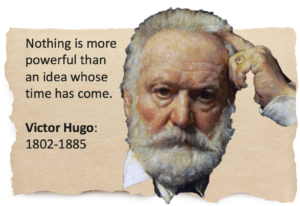 If you had $1m to invest, would you put it into blue chip stocks in search of assured incremental returns? Or a start-up poised for a rapid trajectory but possible flameout? For anyone figuring out how they might change the world, we are an emerging start-up. But, kick the tires on us and you should see robustness, paths to rapid realization, and potential for those who get involved at this stage to play a transformative role.
If you had $1m to invest, would you put it into blue chip stocks in search of assured incremental returns? Or a start-up poised for a rapid trajectory but possible flameout? For anyone figuring out how they might change the world, we are an emerging start-up. But, kick the tires on us and you should see robustness, paths to rapid realization, and potential for those who get involved at this stage to play a transformative role.
What could I do?
Modern Markets for All doesn’t require a mass movement. There’s a historical tradition of small groups pushing to ensure gains made possible by new technologies are shared throughout society. This activity fills an unusual space in civic activism; focused on regional efficiency, often hard to explain, technologically ambitious, having official inertia as a main challenge.
We have two immediate priorities:
- Momentum: Changing the world is a sales job. We need thoughtful, persistent, approaches to targeted decision makers who shape policy in a range of governments.
- Readiness: Any drive for fundamental new public infrastructure typically proceeds with glacial slowness until a triggering event rockets it towards realization. In readiness for a first jurisdiction going our way, we need to ensure the tech., potential legislation, and impact analysis offers as turnkey a solution as possible.
So, we seek:
- Resources: Increased funding would allow us to ramp up core tech. development, hire our own expertise plus recruit people to push us into prioritized governments and policy development bodies around the world. Business plans for our non-profit are available.
 Outreach: Anyone can take the Modern Markets for All concept and push it to thinktanks, policymakers, journalists and other thought leaders in their government.
Outreach: Anyone can take the Modern Markets for All concept and push it to thinktanks, policymakers, journalists and other thought leaders in their government.- Profile: If you are a writer, podcaster, broadcaster, or filmmaker with space for big ideas that are still on the first floor, contact us. We’re happy to be grilled.
- Specialist skills: We are developing the core technologies Modern Markets for All would require for open sourcing. Knowledgeable, committed, help with testing or UI design is welcome from anyone who understands we are stretched in our ability to support you. Likewise, we want templates for enabling legislation. To be credible, they need drafting skills we don’t currently have.
- Recruits: We favor hardened realists over starry-eyed idealists. Experience of institutional sales coupled with social ambitions is our prized combination. We hire as resources arrive. Email us to go in the personnel file.
Becoming an early stakeholder in Modern Markets for All could appeal to the politically disheartened. Anyone energized by hyper-partisanship will likely find infrastructure improvement unfulfilling. No-one needs our permission to advance “MM4A”. And your mission could have international impact. Governments are typically slow innovators but fast followers. Anyone getting a first jurisdiction moving could become a pathfinder for multiple countries.
How could I advance this in my area?
We do get contacted by regular people who want to drive the possibility of Modern Markets for All in their country or region. Our advice is; focus initially on getting someone to investigate fairness of current markets. When that has made the problem clear, a solution should move up the agenda organically.
Who might be approached locally?
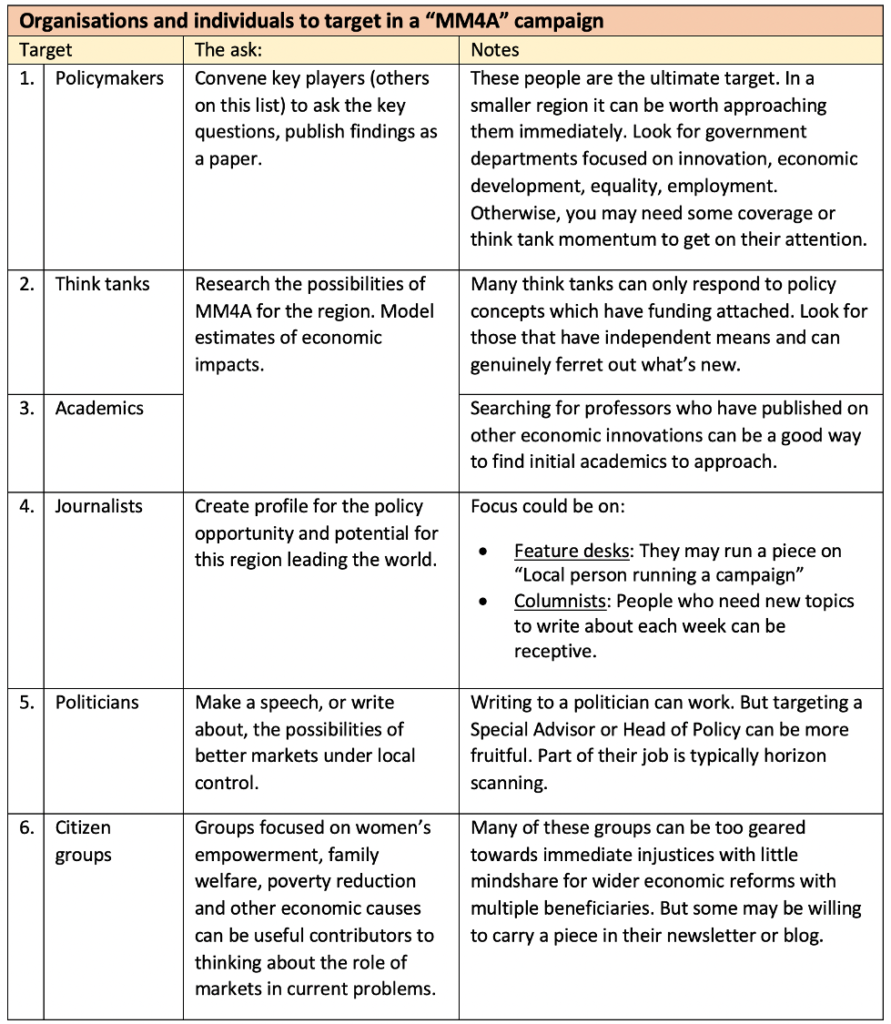
Guiding the dialogue
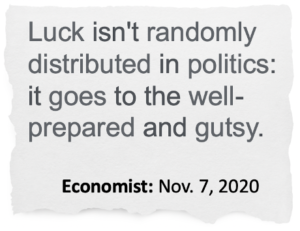 Assume six months’ outreach based on the table above has generated connections, convenings, interest, and momentum in your area. That is a major achievement. The next aim is to press on to concrete policy. We suggest these steps:
Assume six months’ outreach based on the table above has generated connections, convenings, interest, and momentum in your area. That is a major achievement. The next aim is to press on to concrete policy. We suggest these steps:
- Maintain momentum: At this point you are no longer touting something new so interest can flag. It’s worth working to keep profile up, possibly by gaining new endorsements or coverage.
- Seek resources: Your current stage may have been reached on an unpaid basis. It’s worth trying to leverage momentum and findings into funding. Philanthropies dedicated to local improvement might now support a project to scope possibilities and widen outreach.
- Deepen political networks: Look for policymakers with interest in economic fairness and appetite for proactive policy rather than just firefighting headline problems as they occur. Get their input on strategizing about how to move legislation to the next stage.
- Engage opponents: There is a socially very desirable form for this legislation: a principle of maximum usefulness (the new markets deliver everything of which they are capable regardless of what that does to existing institutions). But this will unnerve established institutions. Having driven Phase One could you broker understanding and transparent compromises with powerful bodies who might fear what comes next?
 Operationalize opposition: Campaigning for system change in the 21st Century inevitably leads to willful misunderstanding, trolling, and mischarachterization. But a coherent ideological opposition can be useful; it shapes conflict that attracts reporters who otherwise bore of a policy concept. Look out for articulate opponents, and for forums in which to do battle. Incoherent keyboard warriors can just be filtered out.
Operationalize opposition: Campaigning for system change in the 21st Century inevitably leads to willful misunderstanding, trolling, and mischarachterization. But a coherent ideological opposition can be useful; it shapes conflict that attracts reporters who otherwise bore of a policy concept. Look out for articulate opponents, and for forums in which to do battle. Incoherent keyboard warriors can just be filtered out.
Our learning
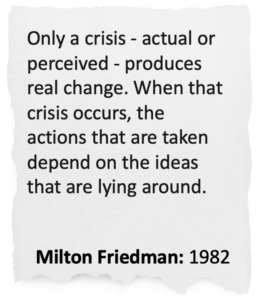 We have worked at the edge of government-led system change in Europe and the US for years. We offer 5 key insights to anyone keen to advance this kind of agenda:
We have worked at the edge of government-led system change in Europe and the US for years. We offer 5 key insights to anyone keen to advance this kind of agenda:
- Align with local priorities: Inward investment, tackling the informal economy, financial volatility, Brexit aftermath. Public official e-markets for regular people could tackle each of these in new ways. It can be easier to find people thinking about a known problem and offer a new solution than to carve out mindshare for a radical possibility.
- Identify tactical openings: Britain’s hugely successful National Lottery was initiated by a Private Members Bill, a fringe process in Parliament. Other concepts first aired at “battle of ideas” events, or in “future possibilities” themed magazine articles. Researching beyond the obvious ways forward can be fruitful.
- Network proactively: Reach out to multiple targets, perhaps requesting a call. In every conversation then ask for onward introductions; who might that person be able to connect you with? When you get a victory, a supportive newspaper piece for example, circulate it to contacts so they see momentum building.
- Be transparent: All proposals have limitations. We are not pushing a sudden solution to specific problems, just another tool in the kit for fighting a spectrum of issues. We should not seek to minimize concerns, instead being clear which could be resolved in legislation and what would remain an inherent risk balanced by potential benefits.
 Don’t flame out: It’s a marathon not a sprint. Great record-keeping, persistent re-approaches, and dogged determination in face of setbacks is far more useful than fiery passion likely to be doused by inevitable slowness and the stretches of dullness inherent in this sort of campaigning.
Don’t flame out: It’s a marathon not a sprint. Great record-keeping, persistent re-approaches, and dogged determination in face of setbacks is far more useful than fiery passion likely to be doused by inevitable slowness and the stretches of dullness inherent in this sort of campaigning.
And if you just want to delve into the details of a Modern Markets for All policy, we offer evolving briefings.

